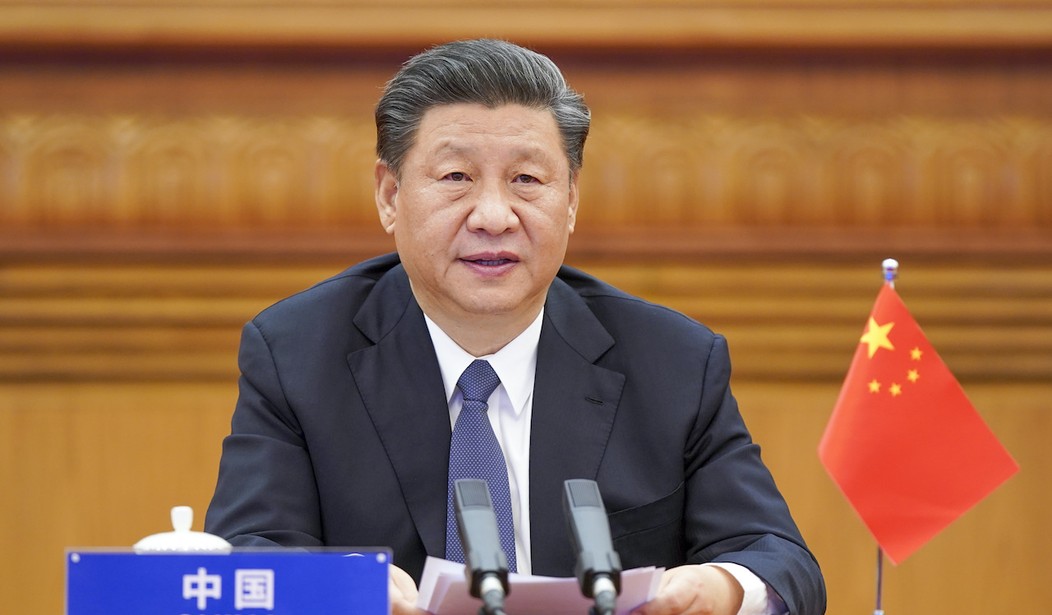In July Japan's Vice Defense Minister Yasuhide Nakayama told the Hudson Institute that China and Russia could launch a surprise "Pearl Harbor-style attack" in the Pacific. The Washington Examiner and Reuters quoted Nakayama as insisting the U.S. and Japan must demonstrate the will to deter both China and Russia because "they are doing their (military) exercises together." They conduct exercises from "Honolulu to Japan," which means America's "protection line is going ... backwards ..."
Nakayama said China would likely target Taiwan. But that threatens Okinawa (a Japanese island with U.S. bases). Mid-Pacific exercises demonstrate targeting Hawaii and the West Coast, so he couldn't rule out an attack on Hawaii reprising 1941 but employing 21st-century weaponry. In 1941 Japan also attacked the Philippines and Southeast Asia -- a multi-pronged strategic offensive.
Nakayama called Chinese President Xi Jinping's regime "aggressive ... (in) thought and will ... So wake up. We have to wake up."
I agree. In last week's column I argued it's "foolish to believe an intense war involving China and the U.S. would be confined to the Taiwan Straits and end with Taiwan's loss." Chinese anti-ship and land-attack missiles can reach the eastern Pacific. In a recent Pentagon war game, Chinese missiles hit regional U.S. bases -- meaning they hit Japan, South Korea and Guam and perhaps Australia, Singapore and Hawaii.
China has territorial goals. China wants to move through the "first island chain" (southern Japan to Borneo). That means seizing Taiwan. China also targets the "second island chain" from the east coast of Honshu (Tokyo's location) through Guam to New Guinea.
Note: Guam is sovereign U.S. territory. Like California and Vermont.
Communist China is conducting "military preparation of the battlefield" operations on four fronts, three in the Pacific. No. 1: In the Himalayas confronting India, Chinese road crews inch forward -- supply routes for a subcontinent war. No. 2: China's artificial islands in the South China Sea (west Pacific) step toward Singapore, the Straits of Malacca and the Indian Ocean. No. 3: Chinese forces routinely probe neighboring air and sea spaces. The most provocative probe Taiwan and Japan. No. 4: Chinese diplomats seek bases worldwide but especially Pacific bases. In 2019 Kiribati cut diplomatic ties with Taiwan. Now China intends to upgrade Kiribati's airfields -- 1,800 miles from Hawaii.
Recommended
What's the time frame for triggering this war? In 1992/93, the late director of the Secretary of Defense's Office of Net Assessments, Andrew Marshall, gave his consultants a long-term thought experiment: How could the U.S. fight and win a war for national survival against China circa 2020 or 2025?
Yes, chillingly prescient. What keeps a Taiwan or western Pacific war with China from escalating to a war for national survival?
Nothing -- which is why China must either be deterred or stopped cold if it attacks Taiwan.
Three factors suggest China might strike in 2023 or election year 2024. No. 1: The Biden administration is incompetent. Its Afghanistan debacle created serious concerns about U.S. reliability. No. 2: Division erodes American public will to resist. A hot-button example: morale-sapping faculty club nostrums like "critical race theory" (recast Marxist tribalism) being imposed on the military.
Will matters. Prussian strategic theorist Carl von Clausewitz called war a clash of wills.
No. 3: The U.S. has no immediate counter for China's Anti-Access/Area Denial strategy that threatens U.S. carrier battle groups with destruction as they move to the western Pacific. The U.S. Navy can't risk losing carriers.
If China quickly wins the big Taiwan battle and breaks out, what could be lost? Here's a list of terrible consequences to mull. Okinawa -- Japanese territory lost to China. Beijing neutralizes Singapore, gaining control of the primary route to the Indian Ocean. South Korea, Japan and Australia are isolated.
If China says it will nuke California unless the U.S. gives up Guam, what do characters like President Joe Biden and Secretary of State Antony Blinken say? Is Beijing making an offer political hacks can't refuse?
We can deter China -- if we don't project weakness. The Navy's 2021 fleet battle problem and the Army's long-range fires concept are examples of creative military operational concepts that can defeat China. What we could use are several score small, cheap ships armed with weapons to suppress Chinese shore-based firepower so the carriers can deliver a coup de grace.

























Join the conversation as a VIP Member